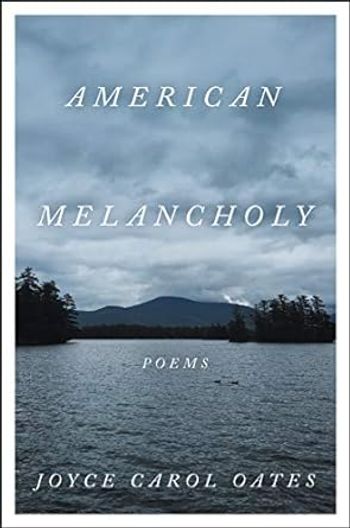
- Vol 32 No 6
- Volume 32
- Issue 6
Can Climate Be Hazardous to Your Mental Health? A View From History
It is clear that unless things change radically in the coming decades, psychiatry-like other branches of medicine-will have to accommodate itself to the effects of disruptions to existing ecosystems.
It is hard to look at a newspaper or a news magazine/blog these days without coming across an article that touches on climate change. The nature, swiftness, and scale of the changes to our environment, reputable experts agree, hold dire consequences for the earth’s organisms, including, of course, human beings. The CDC warns that the health effects of disruptions to existing ecosystems “include increased respiratory and cardiovascular disease, injuries and premature deaths related to extreme weather events, changes in the prevalence and geographical distribution of food- and water-borne illnesses and other infectious diseases, and threats to mental health.”1 It is clear that unless things change radically in the coming decades, psychiatry-like other branches of medicine-will have to accommodate itself to these new realities.
The notion that climate could affect mental health is not new, but rather dates back to antiquity. The ancient Greeks generally believed that along with blood (what we might deem “heredity”), the geographical and meteorological features of a region contributed to the physical and moral characteristics of individuals and groups. Herodotus (c. 484-425 bce) famously quoted King Cyrus as saying that “soft countries breed soft men,” referring quite literally to the soil of such territories.2(p423) It was the Hippocratic tradition of medicine, however, that made an influential medical philosophy of the maxim. The Hippocratic treatise On Airs, Waters, and Places (c. 400 bce) begins by emphasizing the need for physicians to inform themselves about the physical properties of the locale in which they were working and the effects these elements had on local inhabitants:
Whoever wishes to investigate medicine properly, should proceed thus: in the first place to consider the seasons of the year, and what effects each of them produces for they are not at all alike, but differ much from themselves in regard to their changes. Then the winds, the hot and the cold, especially such as are common to all countries, and then such as are peculiar to each locality. We must also consider the quali-ties of the waters, for as they differ from one another in taste and weight, so also do they differ much in their qualities. In the same manner, when one comes into a city to which he is a stranger, he ought to consider its situation, how it lies as to the winds and the rising of the sun; for its influence is not the same whether it lies to the north or the south, to the rising or to the setting sun. These things one ought to consider most attentively, and concerning the waters which the inhabitants use, whether they be marshy and soft, or hard, and running from elevated and rocky situations, and then if saltish and unfit for cooking; and the ground, whether it be naked and deficient in water, or wooded and well watered, and whether it lies in a hollow, confined situation, or is elevated and cold; and the mode in which the inhabitants live, and what are their pursuits, whether they are fond of drinking and eating to excess, and given to indolence, or are fond of exercise and labor, and not given to excess in eating and drinking.3
As historian Andrew Wear4 has noted, the Hippocratic tradition spoke of the soil and human beings in similar medical terms, understanding each to stand in a natural correspondence with one another, a correspondence that also implied a cause-and-effect relationship. This line of thinking was carried forward through the middle ages and into early modern Europe. Not surprisingly perhaps, British writers at the time widely considered England to possess the most ideal climate, which helped account for the supposed fact that its residents possessed the most admirable qualities (“strength of body” and “sincerity of behavior”).
After some of the sons and daughters of England made their way to the New World in the 17th century, some claimed that English bodies enjoyed a special affinity for the land there and that New England air could cure the kinds of “cold, phlegmatic, and melancholic diseases” to which the English were prone. Once large-scale death occurred following brutal winters in North America; however, climatological theory was used to lend support to the idea that the English might in fact be incapable of acclimatizing themselves to the region.4
With global exploration, the expansion of trade routes, and the growth of colonialism, early modern and modern Europeans continuously called on the logic of climatic determinism to understand their encounters with new environments and peoples. Tropical regions were a particularly grave concern for medical and lay observers. By the 18th century, it was generally accepted that there were cold climate and hot climate races and that it remained an open question whether Europeans from the former could thrive among the latter. Newcomers to places like India and the Caribbean were considered to be acutely vulnerable to environmental conditions there, and there was talk of the need for a period of “seasoning,” understood to be time for the “tender frames” of Europeans to “acquire by habit a power of resisting noxious causes.”5 During the 18th and 19th centuries, however, doubts grew as to whether the English in India and Australia6 or the Spanish in the Philippines7 possessed constitutions capable of ever resisting the onslaught of diseases indigenous to these comparatively warmer and more humid climes.
From 1850 to 1950, a number of changes began to alter medical and popular thinking on the subject in the Western world. In medicine, the rise of microbiology and germ theory along with recognition of the role played by mosquitoes in disease transmission helped to shift the attributed responsibility for many illnesses from the climate of entire regions to specific, organic sources. In addition, the growth in international tourism transformed the climate of places such as the Caribbean into commodities marketed as healthy and relaxing vacation spots, especially for residents from the North Atlantic world.8
Nevertheless, the Hippocratic tradition of climatic determinism proved resilient enough to survive into the 20th century. French advocates of neo-Hippocratic medicine during the interwar years, for instance, were generally open to accepting germ theories of contagion. But they also held that cosmic, soil, and hygienic factors were also necessary for pathogenic microbes to thrive. The French physician Marius Piery (1873-1957), a leading voice in the neo-Hippocratic movement, even developed the idea for a new a form of field investigation he dubbed “psychoclimatology,” which focused on how meteorological laws affected the nervous system and mind.9
So, interest in the effects of climate on human health, psychological development, and interpersonal relationships is hardly an invention of environmentalists of the late-20th and early-21st centuries. Like so many other focal points in the history of disease and illness, however, treatment of the subject was shaped not only by medical thinking and professionals, but also by political, economic, and cultural values and concerns.
References:
1. Centers for Disease Control and Prevention. Climate effects on health. http://www.cdc.gov/climateandhealth/effects. Accessed May 13, 2015.
2. Patterson CB. Herodotus. In: Gagarin M, ed. The Oxford Encyclopedia of Ancient Greece and Rome. New York: Oxford University Press; 2010.
3. Hippocrates. On Airs, Waters, and Places. Adams F, trans. http://classics.mit.edu/Hippocrates/airwatpl.1.1.html. Accessed May 13, 2015.
4. Wear A. Place, health, and disease: the airs, waters, places tradition in early modern England and North America. J Mediev Early Mod Stud. 2008;38:443-465.
5. Harrison M. “The tender frame of man”: disease, climate, and racial difference in India and the West Indies, 1760-1860. Bull Hist Med. 1996;70:68-93.
6. Walker D. Climate, civilization, and character in Australia, 1880-1940. Aust Cult Hist. 1997-1998;16:77-95.
7. Reyes RA. Environmentalist thinking and the question of disease causation in late Spanish Philippines. J Hist Med Allied Sci. 2014;69:554-579.
8. Carey M. Inventing Caribbean climates: how science, medicine, and tourism changed tropical weather from deadly to healthy. Osiris. 2011;26:129-141.
9. Osborne MA, Fogarty RS. Medical climatology in France: the persistence of neo-Hippocratic ideas in the first half of the twentieth century. Bull Hist Med. 2012;86:543-563.
Articles in this issue
over 10 years ago
Introduction: Reflections on the Crossing of Cultures in Psychiatryover 10 years ago
A Tour de Force of the History of Psychiatryover 10 years ago
New Findings About Youth Suicideover 10 years ago
Clinical Considerations in Renal Failure, Depression, and Deliriumover 10 years ago
The Most Widely Prescribed Med for Medicare Recipients?Newsletter
Receive trusted psychiatric news, expert analysis, and clinical insights — subscribe today to support your practice and your patients.







